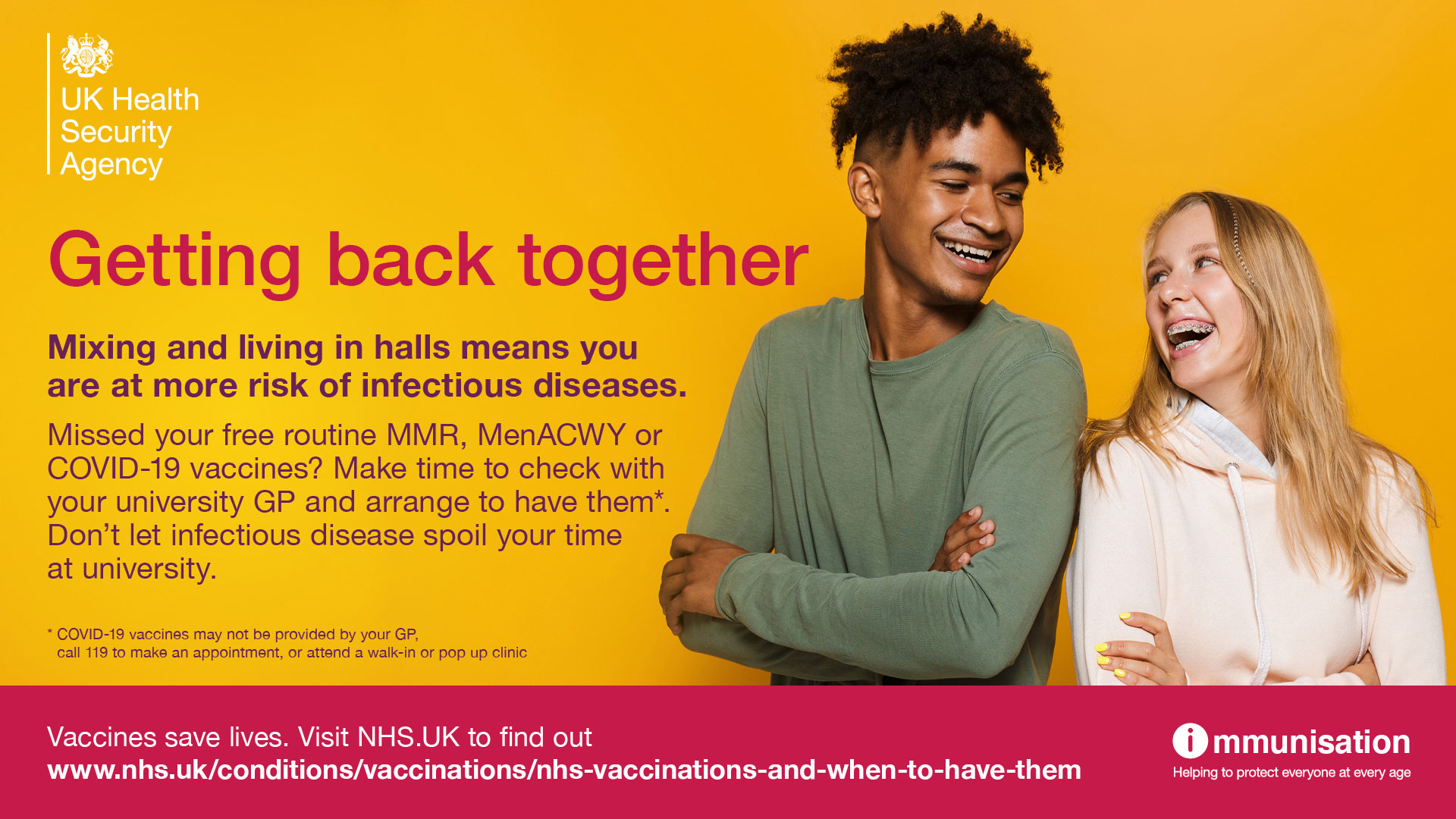Recent data and analysis from the UK Health Security Agency (UKHSA) shows that in autumn 2021 there was an increase in the number of cases of meningococcal disease in teenagers and young adults, mainly caused by group B meningococcal disease (MenB) – with the majority among university students.
Meningococcal disease is a life-threatening infection caused by bacteria that can go on to cause meningitis and septicaemia (blood poisoning). There are 5 main meningococcal strains that cause disease in the UK. Men B is the most common strain in the UK and other strains include MenA, MenC, MenW and MenY.
Signs and symptoms of Men B
The disease can progress rapidly so it is important to be aware of the signs and symptoms so that you can get medical help as soon as possible. Commons signs and symptoms of meningitis and septicaemia:
- fever with cold hands and feet
- vomiting
- drowsy or difficult to wake
- confusion and irritability
- severe muscle pain
- pale blotchy skin, spots or rash
- severe headache
- stiff neck
- dislike bright lights
- convulsions or seizures
If you have any of these symptoms, seek medical help immediately.
Have you had your vaccines?
It’s important to keep up to date with your vaccines.
It is recommended that you get the MenACWY vaccine (protecting against 4 types of meningococcal disease) and MMR (measles, mumps and rubella) vaccine before starting university. If that is not possible, you should have the vaccines as soon as you can after you arrive.
If you are unsure which vaccines you have had, contact your GP.
